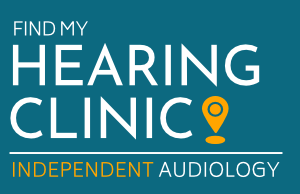10 Early Warning Signs of Hearing Loss You Shouldn’t Ignore

Hearing loss doesn’t typically happen overnight. For most people, it develops so gradually that the early signs are easy to miss, and just as easily dismissed. You might catch yourself asking people to repeat themselves, turning the TV volume up a little louder than before, or avoiding noisy restaurants because conversations feel too tiring to follow.
The truth is, these are often the first signals of hearing loss. And while it may seem like a minor inconvenience at first, untreated hearing loss can have a significant impact on your confidence, relationships, and even your brain health.
At Find My Hearing Clinic, our network of independent, locally owned clinics is here to help you recognise these early signs so you can take action sooner. Addressing hearing changes early not only allows you to hear better but also safeguards your overall well-being.
Why Early Detection Matters
Many people delay addressing hearing loss, telling themselves it’s “not that bad” or something they can put off until later. Unfortunately, waiting can make things more complicated in the long run.
Untreated hearing loss doesn’t just affect your ears, it can affect your physical, social, emotional, and mental health. It has far-reaching consequences beyond simply not hearing something that was said.
The good news is that early detection makes a big difference. A simple hearing test can confirm whether you have any hearing loss, and if so, can indicate the best way forward. Early intervention means more effective treatment, a healthier you, and a better quality of life.
The 10 Early Warning Signs of Hearing Loss
1. Frequently Asking People to Repeat Themselves
If you find yourself often saying, “Sorry, what was that?” or “Can you say that again?”, it might not be others mumbling, it could be that your ears are missing key sounds.
2. Turning Up the TV or Radio Louder Than Others Prefer
Do family members or friends complain that the TV is too loud, even though it sounds just right to you? This is a classic early sign of hearing loss, because your brain is compensating for missed details by cranking up the volume.
3. Difficulty Following Conversations in Noisy Environments
Restaurants, parties, and busy cafés are often the first places people notice a problem. If background noise makes it difficult to keep up with conversations, your ears may not be filtering sound as effectively as they once did.
4. Struggling to Hear on the Phone
Phones don’t provide visual cues, so hearing loss becomes more noticeable. If you regularly miss words, find phone calls stressful, or avoid answering altogether, it may be a sign of reduced hearing clarity.
5. Thinking People Are Mumbling
If it feels like everyone around you has suddenly developed the habit of mumbling, more often than not it is actually your hearing. Hearing loss often makes speech sound less clear, particularly consonants such as “s,” “f,” and “t.”
6. Missing High-Pitched Sounds
Children’s voices, birdsong, or household alerts like beeping appliances and doorbells are often among the first sounds people with hearing loss struggle to hear. High-frequency hearing loss is very common and can develop gradually.
7. Trouble Keeping Up in Group Conversations
It’s one thing to miss the odd word in a one-on-one chat, but group conversations can feel overwhelming when you’re experiencing hearing loss. If you find yourself lost, nodding along, or withdrawing because it’s too exhausting to follow, it’s time to take action.
8. Relying on Lip-Reading or Context Clues
Do you catch yourself watching people’s mouths or piecing conversations together based on context rather than hearing every word? This subconscious coping strategy is another indicator of hearing difficulties.
9. Ringing or Buzzing in the Ears (Tinnitus)
Tinnitus; ringing, buzzing, or hissing in the ears, is often linked to hearing loss. While it doesn’t always mean your hearing is reduced, it’s a strong signal that it’s time for a professional hearing check.
10. Withdrawing from Social Activities
Perhaps the most concerning sign is behavioural. If you’re avoiding family gatherings, dinners with friends, or other social activities because hearing feels too difficult or draining, your quality of life is already being affected. Don’t ignore this – help is available.
Common Misconceptions About Hearing Loss
Many people delay seeking help because of misconceptions. Let’s clear a few up:
- “It’s just part of getting older.” While hearing changes are common with age, they are not something you have to live with. Support is available, and early action makes a big difference.
- “My hearing isn’t bad enough yet.” Small changes add up over time. The earlier you address hearing loss, the easier it is for your brain to adjust and stay sharp.
- “Hearing aids are bulky and obvious.” Modern devices are discreet, comfortable, and highly advanced. Many are virtually invisible and connect seamlessly with your phone or TV.
At our network of independent clinics, we regularly see how addressing these misconceptions empowers people to take that important first step.
What to Do if You Recognise the Signs
If any of these signs sound familiar, the most important thing you can do is get your hearing checked. Even if you only relate to one or two, it’s worth finding out more.
A hearing test is quick, easy, and provides clear answers. If your hearing is normal, you’ll have peace of mind. If some hearing loss is present, you’ll have options and support tailored to your needs.
At Find My Hearing Clinic, we take pride in being independent. This means we recommend solutions based on what’s best for you, rather than being tied to a specific brand or manufacturer. Our aim is to give you confidence, clarity, and the support you deserve.
Hearing loss often creeps in quietly, but the effects can be far-reaching, impacting your relationships, confidence, and even brain health. The earlier you recognise the signs, the sooner you can take action to protect your quality of life.
